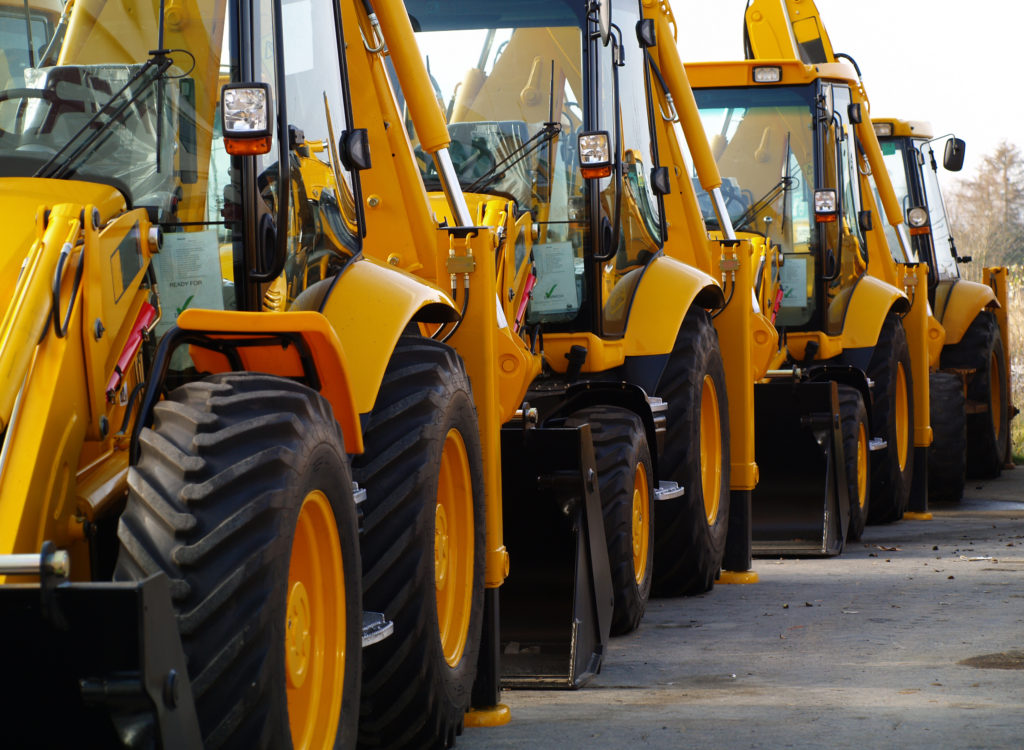
Different Types of Contractor Equipment Rentals
Contractor equipment rentals can help you avoid the hefty financial hit of the initial purchase, dodge several repair and maintenance costs, avoid the risk of market fluctuations and depreciation, and allow you to focus on acquiring project-specific rental equipment rather than being stuck with an investment you cannot justify due to its relatively low usage.
Understanding the different types of contractor equipment rentals and why opting to rent or lease contractor equipment can help your business move in the right direction is crucial.
Explaining Contractor Equipment Rentals
Regardless of whether you’re in the market for a backhoe or a boom lift, you should always ask yourself whether it’s smarter to buy or rent. In any case, heavy construction equipment is a significant investment for your company.
No construction business can expect to be taken seriously without its own equipment – but that doesn’t mean you need an entire warehouse of unused heavy equipment or that you need to specialize in jobs that only require the equipment you are already using.
Contractor equipment rentals allow you to pick and choose the right tool for the job and put the equipment away when you no longer need it. Need it for another job? You can negotiate with the lender to renew your lease and still massively cut down on the costs you might have accrued if you had paid for equipment you were only going to use twice or thrice that year.
Types of Contractor Equipment Rentals
Nearly half of all construction equipment in the US is rented. Some equipment is rented more often than others. When figuring out what types of equipment to rent rather than buy, your options should be entirely dictated by what your business prioritizes and what kind of contracts you pick up.
Does renting contractor equipment make sense for every element of your company repertoire? It does not. There are certainly examples of heavy equipment that you can and should own outright, especially if you know you will need them nigh-constantly throughout your projects this year. A few examples of contractor equipment you might want to finance and own outright include:
- Excavators
- Bulldozers
- Dump trucks
- Compactors
- Forklifts
On the other hand, there are a few specialized pieces of machinery that can cost several hundred thousand dollars yet may play a crucial role in street repairs, mining operations, construction, and more, including:
- Asphalt pavers
- Cold planers
- Autonomous drills
- Mining rigs
- Road rollers
- Motor graders
- And more.
The choice of whether to rent contractor equipment or buy it outright depends entirely on what kind of a return on investment you expect to see. If you think you can recoup the equipment costs and expect to see more revenue from owning it rather than renting it for the job, then it makes sense to put in a request for financing instead of leasing.
On the other hand, if you know this is a rare contract, seeking out a leasing option for your lender will help your company stay in the black and can protect your cash flow.
How Contractor Equipment Rentals Works
Whereas you might go to a bank or a financial institution for a cash loan, construction equipment and other kinds of heavy equipment are best financed through a lender or vendor who specializes in providing leases and financing options for business equipment.
Because equipment itself acts as collateral when seeking financing, most of these financing options are easier to come by than a traditional bank loan. They will have lower overall requirements, making them an excellent choice for younger businesses.
Established contractors can rely on leasing and financing options to build a better working relationship with a specific lender or financial group, especially if they plan to lease different kinds of equipment over the years continuously.
The contractor equipment rental industry has exploded in recent years, as rising costs and economic instability have given way to an unstable economy, where options with far greater flexibility – such as renting a forklift for a few hundred dollars per week – beat the option of committing to a multi-year lease of over ten thousand dollars.
Oftentimes, there’s little to nothing to sign or agree on. Money is exchanged, the equipment is picked up or delivered locally, the lease can be extended, or the equipment is sent back. Equipment vendors can take advantage of a growing number of companies hesitant to outright purchase equipment, yet still in need of it. In contrast, construction companies and contractors can leverage the flexibility of renting heavy equipment without additional fees, maintenance costs and considerations, repair issues, depreciation, and much more.
Renting vs. Purchasing Contractor Equipment
To recap, let’s go over a few of the basic reasons why you might want to consider renting contractor equipment instead of purchasing it:
- Pay for what you need.
- You can choose to keep your equipment updated.
- You avoid maintenance costs.
- There are far fewer storage problems.
- You can rent the equipment where you need it, remove transport issues.
- Eliminate opportunity cost by preserving your working capital.
- Minimize the impact on your cash flow.
- Make immediate tax deductions on contractor equipment rental costs as a business expense.
Whether to rent, lease, or buy depends on the kind of equipment you need, when you need it, how often you need to upgrade, and your company’s financial situation. When opting to rent, lease, or finance, picking the right partner is important.
How HFG Can Help
We can help you find the best contractor equipment rental solution for you.
Our heavy equipment financing and leasing solutions are tailored towards companies looking for ways to free up their working capital and maintain the option of going to the bank for a cash loan on other investments and expenditures.
